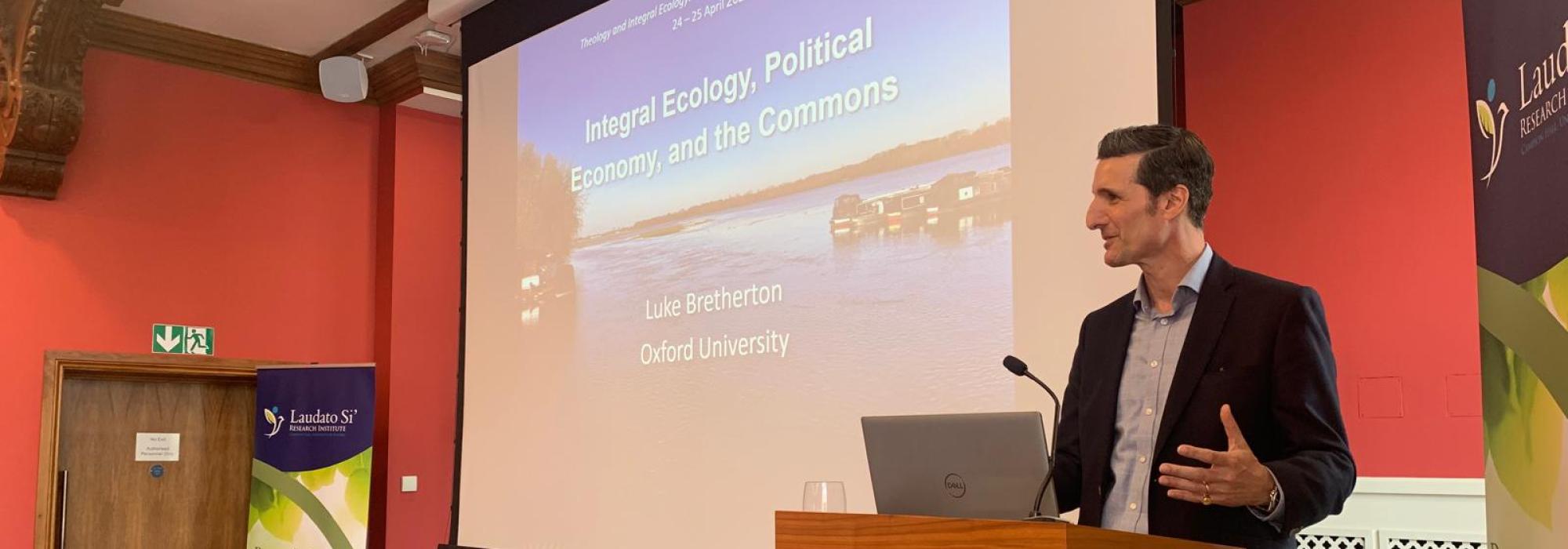There is no one path to a solution. This makes a variety of proposals possible, all capable of entering into dialogue with a view to developing comprehensive solutions.
-
Pope Francis (Laudato Si', 60)
25/04/25. Dedicated to Pope Francis, the second day of our conference continued building on the themes introduced yesterday, applying them across a range of real-world contexts and methodologies. Held at the Oxford Martin School, Theology & Integral Ecology: New Approaches to our Planetary Crisis offered a series of enriching debates and grounded reflections. Topics included Indigenous cosmovisions; aesthetics; integral ecology initiatives in the UK, the Caribbean and Uganda; the threats of mining; geospatial land mapping; eco-anxiety; and the enduring relevance of the commons in today's political economy.
TODAY'S THEMES
The second day of the conference drew on a variety of disciplines to find synergies and foster a more holistic understanding of our contemporary crisis, enriching the theological debate with grounded experiences and ideas and encompassing diverse wisdoms and forms of knowledge.
KEYNOTE LECTURES
Dr Hilda Koster opened the day by reflecting on settler colonialism and Indigenous sacralities, focusing on the ecological dimension of colonialism and the ways in which integral ecology might enter in "a paramount sustained dialogue with Indigenous theologians."
Prof Luke Bretherton explored the ancient social practice of the commons ("a form of integral ecology in itself, with its elements of collaboration, nonhuman ecosystems, and material and social processes") and how we might recover these practices as a response to the enclosure and assimilation that we are subject to in the age of AI. Questions from the audience included, among others, the role of emotions, anger, lament and resistance - and even how the Lord of the Rings might offer a theological interpretation of these themes.
PANEL: INTEGRAL ECOLOGY IN TRANSDISCIPLINARY PERSPECTIVES
Moderated by Dr Timothy Howles, this panel included Prof Nathalie Seddon, the Rev Prof Emmanuel Katongole, Prof Mark Harris, Dr Richard Boyle, and Prof Carmody Grey. Together, they reflected on how integral ecology might truly transcend disciplinary boundaries, and whether academia has yet created the spaces for such integration. Questions focused on the balance between theory and practice, the relationship with practitioners, and the problem of scale.
TODAY'S THEMES
The second day of the conference drew on a variety of disciplines to find synergies and foster a more holistic understanding of our contemporary crisis, enriching the theological debate with grounded experiences and ideas and encompassing diverse wisdoms and forms of knowledge.
KEYNOTE LECTURES
Dr Hilda Koster opened the day by reflecting on settler colonialism and Indigenous sacralities, focusing on the ecological dimension of colonialism and the ways in which integral ecology might enter in "a paramount sustained dialogue with Indigenous theologians."
Prof Luke Bretherton explored the ancient social practice of the commons ("a form of integral ecology in itself, with its elements of collaboration, nonhuman ecosystems, and material and social processes") and how we might recover these practices as a response to the enclosure and assimilation that we are subject to in the age of AI. Questions from the audience included, among others, the role of emotions, anger, lament and resistance - and even how the Lord of the Rings might offer a theological interpretation of these themes.
PANEL: INTEGRAL ECOLOGY IN TRANSDISCIPLINARY PERSPECTIVES
Moderated by Dr Timothy Howles, this panel included Prof Nathalie Seddon, the Rev Prof Emmanuel Katongole, Prof Mark Harris, Dr Richard Boyle, and Prof Carmody Grey. Together, they reflected on how integral ecology might truly transcend disciplinary boundaries, and whether academia has yet created the spaces for such integration. Questions focused on the balance between theory and practice, the relationship with practitioners, and the problem of scale.
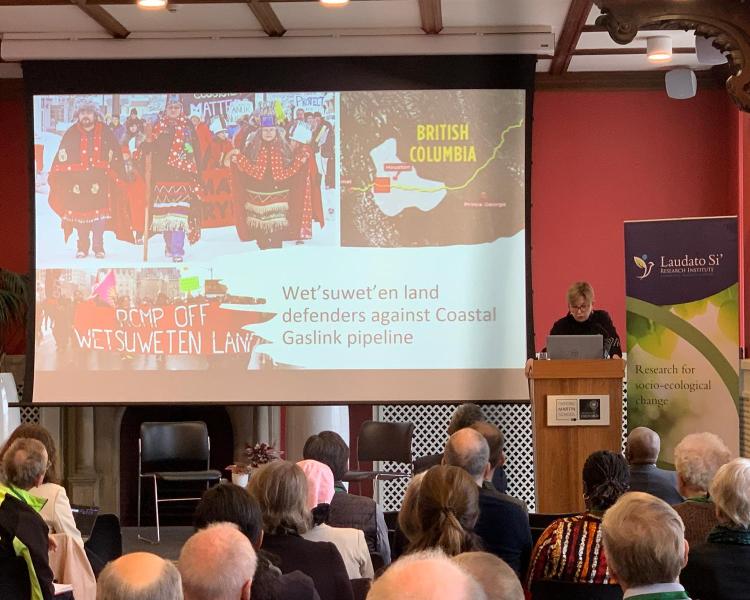
Like yesterday, the conversation deepened in three focused streams:
(1) Perspectives from Theology and Philosophy, (2) Interdisciplinary Perspectives, and (3) Applications in Culture, Society, and Politics.
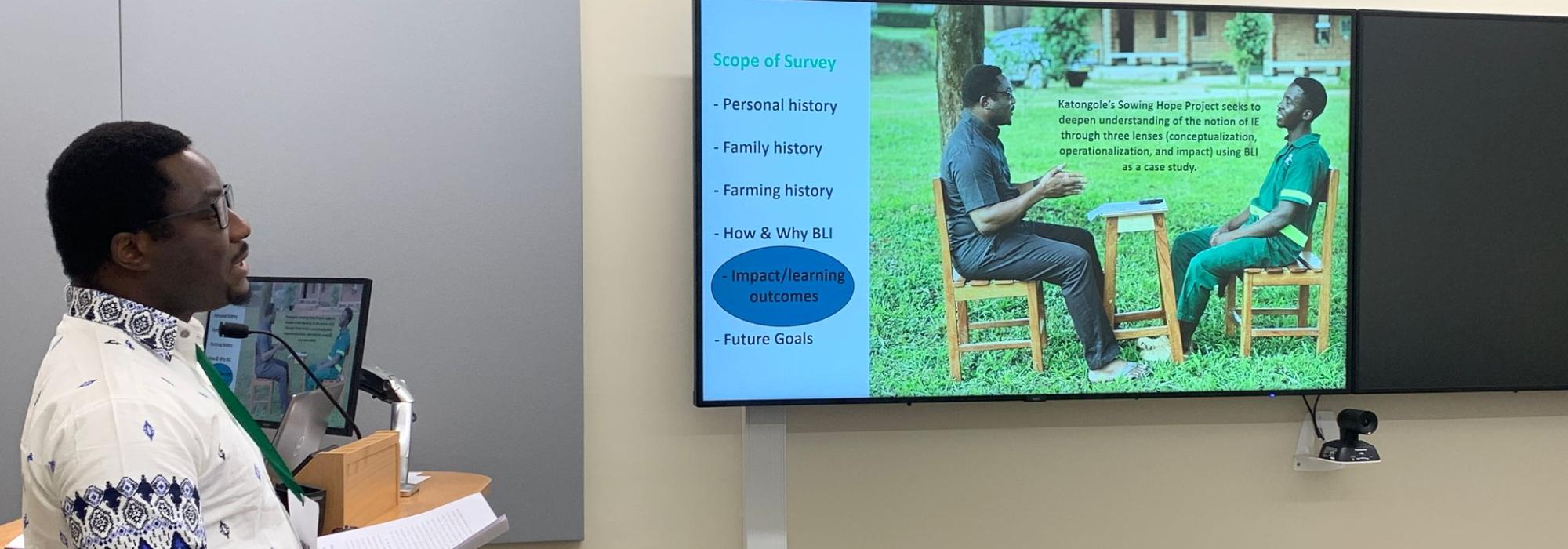
STREAM 1: PERSPECTIVES FROM THEOLOGY AND PHILOSOPHY
Caitríona Cunningham opened with reflections on eco-anxiety, followed by Dr Vicente Chong, SJ, who explored art as a vehicle for integral ecology, through works by Maximino Cerezo Barredo and Adolfo Pérez Esquivel. Dr Timothy Howles closed the session with a presentation on the hubristic conflation of Earth and God.
STREAM 2: INTERDISCIPLINARY PERSPECTIVES
The group, with presentations from Dr Séverine Deneulin (pictured right) and Molly Burhans, focused on the critical issue of mining and the importance of geospatial land mapping in providing comprehensive and impactful solutions.
STREAM 3: APPLICATIONS IN CULTURE, SOCIETY, AND POLITICS
Dr Kasia Mika-Bresolin offered a reflection on Caribbean perspectives through Black thought and poetics. Dr Matthew Barber-Rowell (pictured below) shared insights from Spaces of Hope, rooted in urban communities in northwest England. The Revd Emmanuel Ojeifo (pictured above) concluded with an outline of the experience of the Bethany Land Institute in Nandere, Uganda.
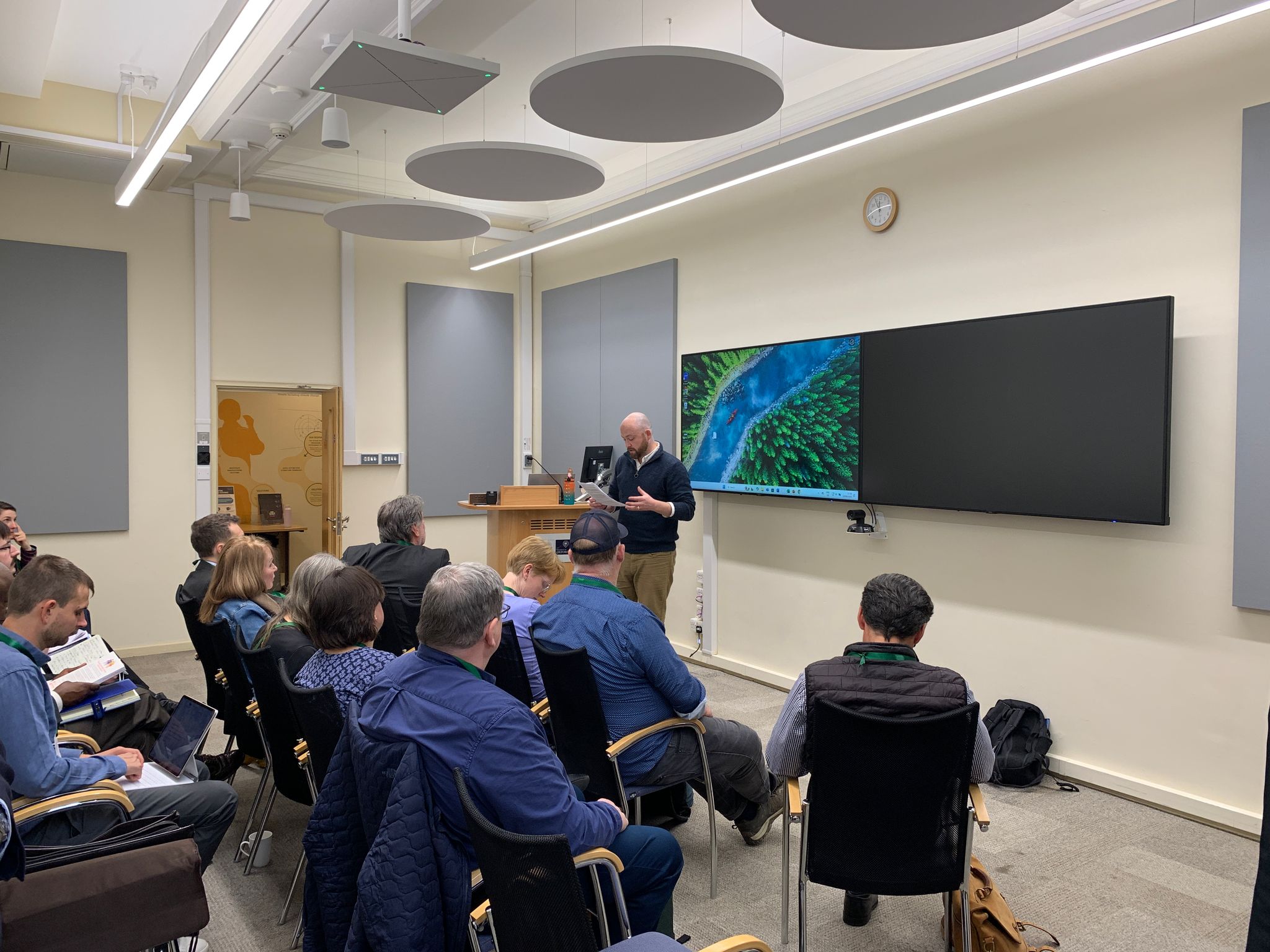
Below: Dr Vicente Chong, SJ
STREAM 1: PERSPECTIVES FROM THEOLOGY AND PHILOSOPHY
Caitríona Cunningham opened with reflections on eco-anxiety, followed by Dr Vicente Chong, SJ, who explored art as a vehicle for integral ecology, through works by Maximino Cerezo Barredo and Adolfo Pérez Esquivel. Dr Timothy Howles closed the session with a presentation on the hubristic conflation of Earth and God.
STREAM 2: INTERDISCIPLINARY PERSPECTIVES
The group, with presentations from Dr Séverine Deneulin (pictured right) and Molly Burhans, focused on the critical issue of mining and the importance of geospatial land mapping in providing comprehensive and impactful solutions.
STREAM 3: APPLICATIONS IN CULTURE, SOCIETY, AND POLITICS
Dr Kasia Mika-Bresolin offered a reflection on Caribbean perspectives through Black thought and poetics. Dr Matthew Barber-Rowell (pictured below) shared insights from Spaces of Hope, rooted in urban communities in northwest England. The Revd Emmanuel Ojeifo (pictured above) concluded with an outline of the experience of the Bethany Land Institute in Nandere, Uganda.

Below: Dr Vicente Chong, SJ
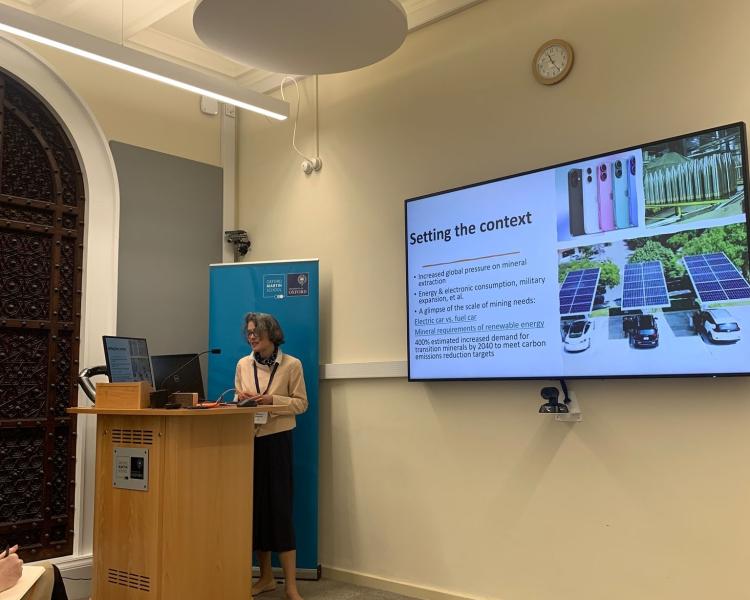
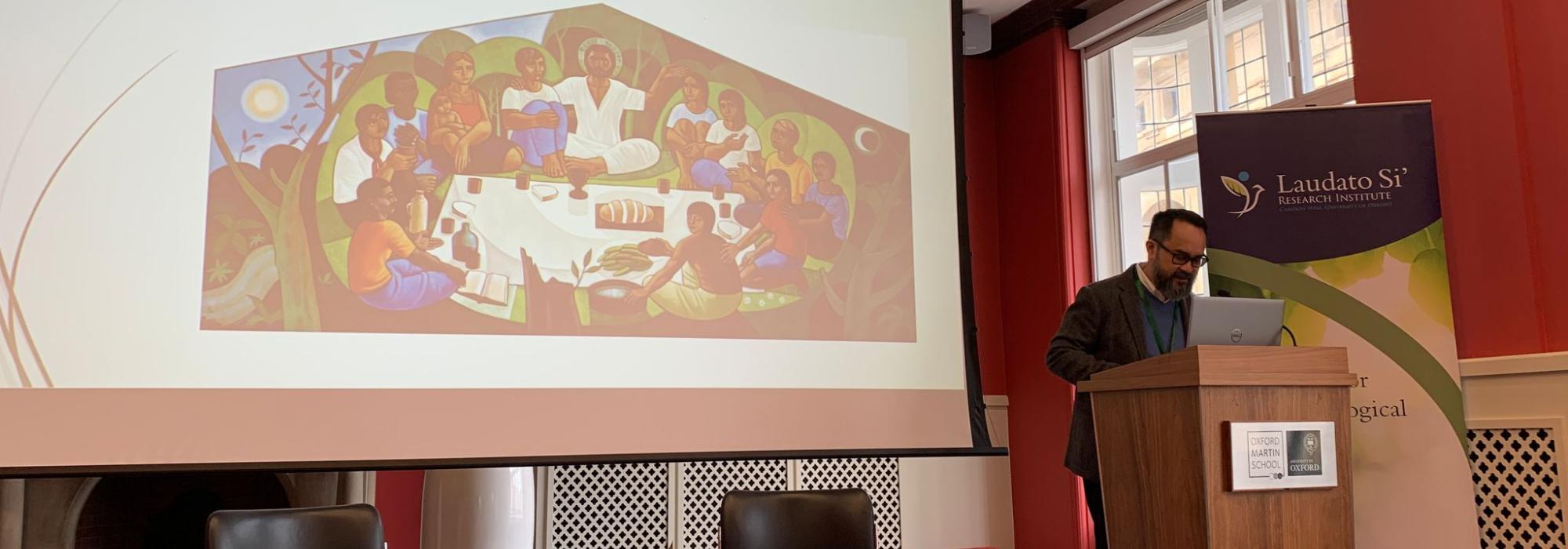
Related News
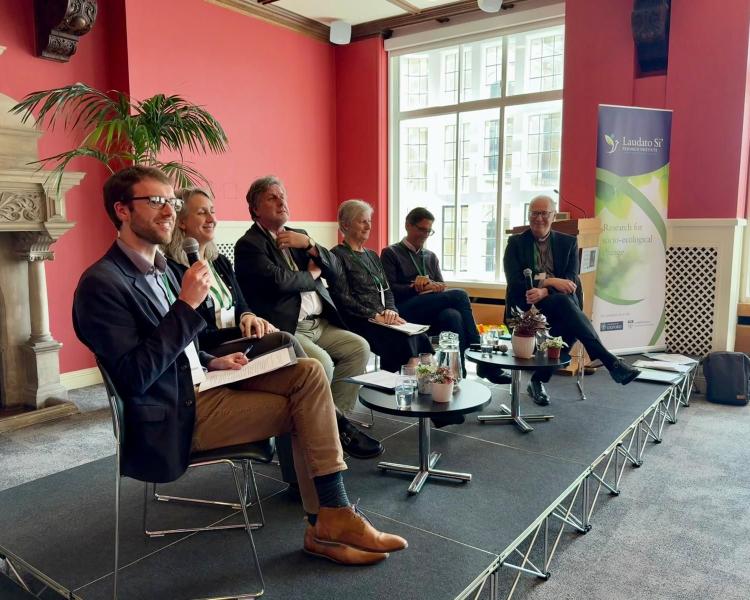
Theology & Integral Ecology Conference: Day 1
The first day of the conference included keynote lectures, panels, a film screening, and a dedicated Evensong at Christ Church.
Discover More
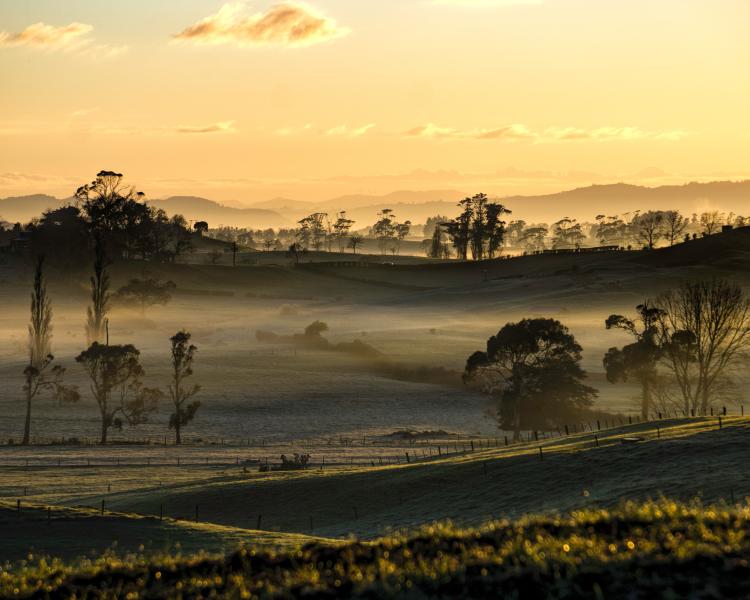
Theology and Integral Ecology Conference: Speakers
Biographical description of our keynote speakers
Discover More
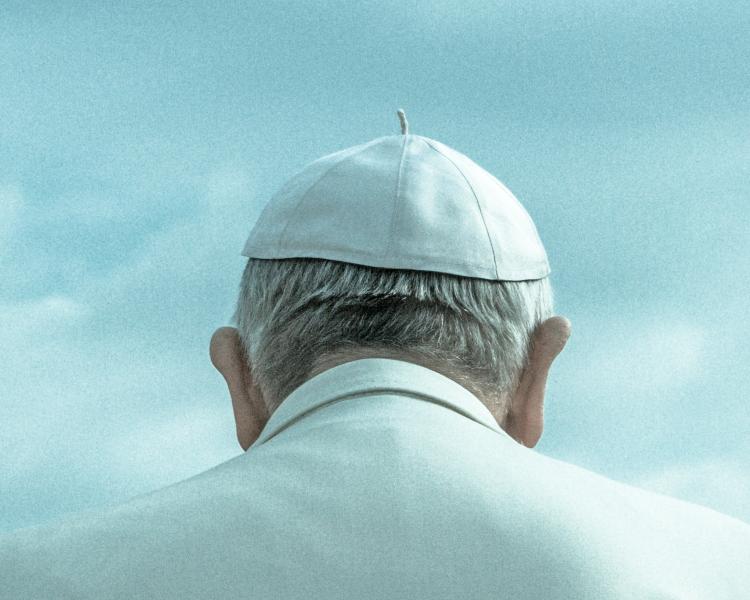
Pope Francis has returned to the Lord: A statement from the Jesuits in Britain
21st April 2025
Discover More


